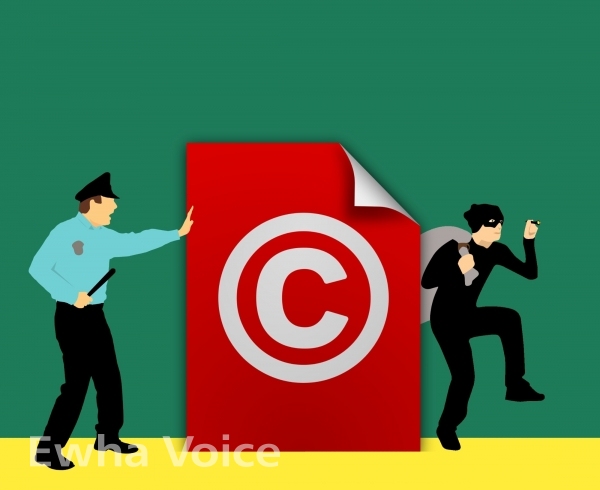
The issue of plagiarism has been in the spotlight recently in Korea, shaking academia and the education environment. Educators have faced renewed challenges in preventing plagiarism as new technologies make it easier for students to generate plagiarized work. All the while, a series of high-profile plagiarism investigations involving government officials and their close relations have led to protests and petitions.
This April, Massachusetts Institution of Technology (MIT) approved the admission of Alex Han, the daughter of Korea’s 69th Minister of Justice, Han Dong-hoon. This has renewed controversy over Han, for she has been dogged by allegations that she plagiarized an academic paper for a global conference.
The emergence and development of generative algorithms have also further increased the risk of plagiarism.
The most notable example these days is ChatGPT, an AI chat model launched by OpenAI last November, which particularly caused an uproar at Texas A&M University last month. Professor Jared Mumm from the university’s agricultural college announced that students who had submitted their assignments using ChatGPT would receive scores of zero for cheating. Science Po, a prestigious French university, also forbade students from using ChatGPT to complete their assignments.
Professor Peter Kipp from the Division of English Language & Literature thinks that these technological advancements have enabled plagiarism.
“ChatGPT can essentially plagiarize anything because of its system of taking big data and making statistically probable sentences and paragraphs,” Kipp explained.
Meanwhile, Lee In Jae, a professor from the Department of Ethics Education at Seoul National University of Education, thinks that the plagiarism issue in Korea has a long way to go.
“Citizens as well as researchers have become more aware of plagiarism through the media,” said Lee, who teaches research ethics and AI ethics at universities and academies. “Yet the actual number of cases have not been reduced and awareness of plagiarism is not high enough.”
These days, Lee often sees college students who fail to receive credit after being judged as having committed plagiarism. He pointed out that the desire to complete assignments on top of the ease of access and usage of the Internet has increased plagiarism among students.
“A number of universities in Korea are strengthening education on correct citation and source indication to prevent plagiarism, but students are not interested and therefore lack the ethical writing skills,” Lee commented.
Therefore, Lee stressed that continuous and systematic efforts should be made to prevent plagiarism from occurring. It is important to guide students to accurately recognize what plagiarism is and when a work is judged as plagiarism, and additionally, to create a culture that can prevent recurrence by strengthening punishment for offenders.
Lee pointed out that research ethics education in South Korea is insufficient, as he explained that he does not know of any in-person programs that teach students about plagiarism. As a result, Lee took part in the research about guidelines on plagiarism prevention for primary and secondary school education.
Such education on plagiarism is found worldwide, since it is crucial to prevent plagiarism and the subsequent controversies in academia. According to Australia’s South Morning Herald, about 350 high schools in Australia are using a plagiarism checker Turnitin, teach academic integrity and plagiarism, and operate websites that explain copyright and plagiarism laws in detail.
Ewha Womans University has also been making various efforts to prevent plagiarism. In many classes at Ewha, Turnitin verification is also essential when submitting assignments.
Bae Seohyun, a freshman from the Department of English Education shared her experience with plagiarism checkers. Reflecting on her experience at high school where checking for plagiarism was not mandatory, she was surprised to find out about plagiarism checker programs after coming to Ewha.
Additionally, Ewha Womans University Library provides access to plagiarism checkers such as Turnitin or CopyKiller and resources about research ethics regarding plagiarism.
To prevent plagiarism, Professor Kipp provides several policies and guidelines regarding plagiarism in classes. The guidelines he uses include clauses about penalties, ranging from losing credit on assignments to receiving zero points. He also shared one example of his College English class assignment of writing restaurant reviews where he required the students to have a photo credit when putting photos in their reviews, even if they took the photos themselves.
Kevin Buchanan, the professor from the Department of English Education also takes a similar attitude regarding the plagiarism issue.
“What I do is I involve myself extensively in the process of students’ creation of work,” he said. “Usually, I ask my students to submit early planning stage work for their topics.”
Buchanan stressed that if teachers are putting students in the position where they feel motivated to do the wrong thing easily, the responsibility falls back to the teachers. Thus, the assignments instructors offer have to be meaningful enough, such as having some personal elements that students will want to commit to completing themselves.

